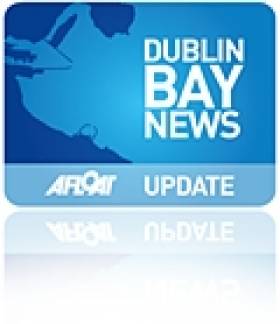Displaying items by tag: New Chairperson
Port of Cork Welcomes New Chairperson Following Announcement by Transport Minister
A new Chairperson of the Port of Cork Company (POCC) has been announced by the Minister for Transport, Eamon Ryan T.D.
Michael Walsh, whom the Minister described as having a ‘wealth of management and board experience’ takes the role Chairperson of Port of Cork Company (POCC) during what is one of the most pivotal periods of investment and growth for the company.
Speaking on the appointment, Minister Ryan stated: “I am pleased to appoint Mr Walsh as the new Chairperson of the Port of Cork Company. Mr Walsh brings a wealth of executive management experience governing major infrastructure projects, as well as extensive board experience, and I am confident that he will be a good fit in this role with the Port of Cork Company. I wish him every success as he takes on the challenge of leading the company at an exciting time as they move to their new container handling terminal at Ringaskiddy.”
Mr Walsh is currently responsible for global commercial operations for the US energy technology company Smart Wires and before this held senior leadership positions in EirGrid, ESB, IWEA as well as a lecturer in UCD. He also currently chairs the Research Advisory Committee for the Global Power System Transformation Consortium. He has a phD in Engineering and a Masters in Business Administration.
The appointment of Port of Cork Company’s Chairperson follows a recent appointment of highly regarded HR specialist Joan McGrath as a Director to the board. Ms McGrath brings her HR expertise and her experience as a current board member also of the Irish Aviation Authority to the POCC.
The Board appointments come at a pivotal time for the Port of Cork Company, which is responsible for the broad range of commercial running of Cork harbour as well as the navigation and berthage in the port.
On his five year term as Chairperson, Mr Walsh reflected on the key opportunities for POCC: “It’s a great honour to be nominated as Chairperson of Port of Cork Company as we strengthen our position as a key European and Irish Tier 1 Port.”
“It’s an exciting era for the region and for the Port and we are mindful of creating a sustainable future for all communities who live on and are reliant on the harbour and the port’s operations. The €100 million investment in Phase 2 of the Ringaskiddy terminal will allow us to move the remainder of our container business from the city to the lower harbour. It will also increase our port capacity, bringing more business and jobs to the region. However the completion of the M28 road will be vital for this increased capacity. Another significant plan is to develop bulk trade at Marino Point and to utilise its rail link where feasible, thus reducing the carbon impact of this trade by moving freight from road to rail, allowing bulk trade to leave Cork city quay and free up the Docklands for commercial and community development.”
Port of Cork CEO Eoin McGettigan congratulated Michael Walsh on his appointment as Chairperson: “I wish our new Chairperson every success in his new role as he joins us at a critical time for our Port. I welcome Joan McGrath also as an outstanding professional who I have no doubt will bring her specific expertise to the role.”
Joan McGrath stated: “I look forward to supporting and contributing my experience to the Port of Cork on the delivery of its exciting strategy for growth and investment over the coming years.”
These appointments follow the appointment of Gillian Keating, former President of Cork Chamber and Corporate Partner with legal firm Ronan Daly Jermyn to the Board of POCC in 2020.
Dun Laoghaire Harbour Company Appointed First Female Chairperson
#NEWchairperson – Dun Laoghaire Harbour Company has a new chairperson, Eithne Scott Lennon, CEO of the Fitzpatrick's Killiney Castle Hotel, who becomes the first female to take this board position.
As Business & Leadership reports, Scott Lennon has been an active member of the board since 1994 and played a significant role in the development of the Masterplan, which aims to realise the harbour's potential as a major marine, leisure, cultural and tourism destination.
Official confirmation of her appointment by Minister for Transport, Tourism and Sport Leo Varadkar TD came after Scott Lennon as previously reported on Afloat.ie, presented her vision and plans for the Harbour Company to the Joint Oireachtas Committee on Transport and Communications.





























































